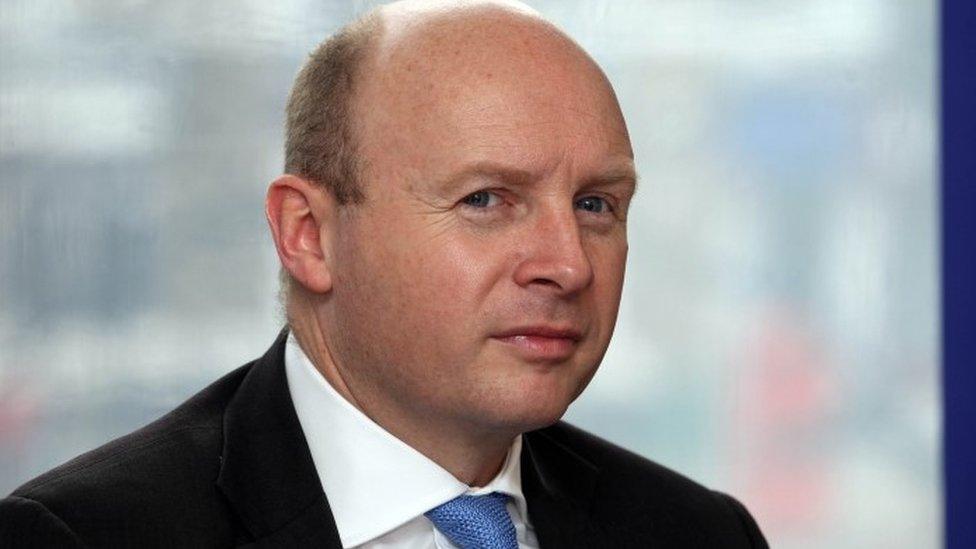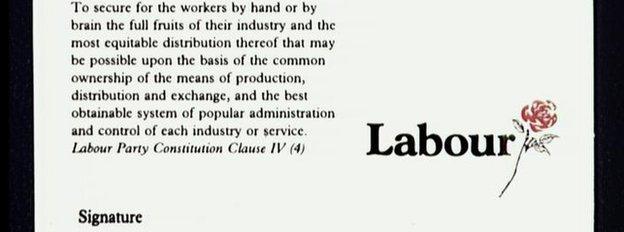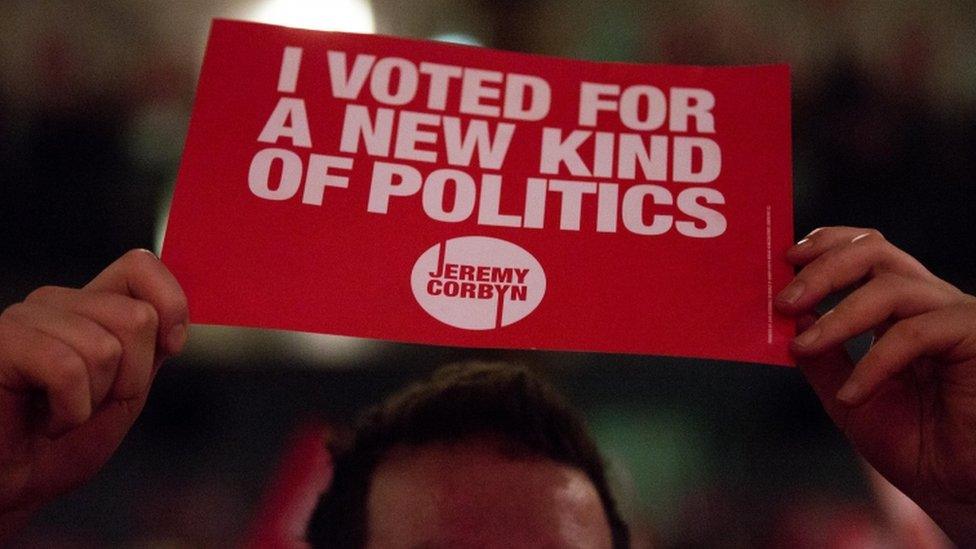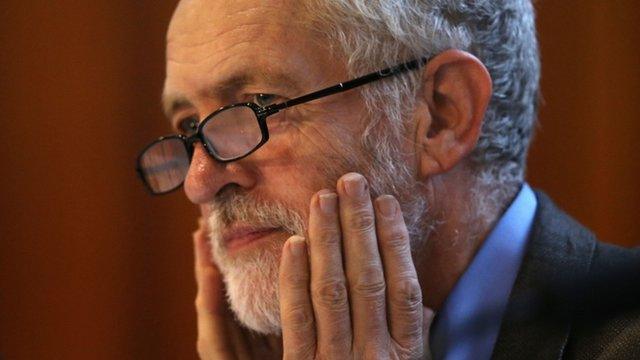Labour urged to re-write Clause IV to focus on inequality
- Published

Liam Byrne left the shadow cabinet after Mr Corbyn's election
Labour should rewrite Clause IV of its constitution to make explicit its commitment to reducing inequality, a former Cabinet minister has said.
Liam Byrne said different wings of the party could unite around the idea and it could win support from business "frustrated" the UK was too unequal.
Jeremy Corbyn has suggested revisiting Clause IV to reinsert a commitment to public ownership dropped in 1994.
Mr Byrne said Labour MPs who disagreed with this must produce "better ideas".
Mr Byrne, who left the shadow cabinet after Mr Corbyn's election, has since formed a campaign group called Red Shift with other Labour MPs on the centre-right of the party to formulate new ideas.
Ahead of a speech to the Policy Network think tank, he told the BBC that MPs worried about the direction of the party under Mr Corbyn's leadership must "respect his mandate and mantra" and instead of "throwing rocks at him", had to accept that Mr Corbyn's emphasis on growing income inequality was popular with the public.
'Get with the programme'
By rewriting Clause IV, he said, Labour would demonstrate that it was placing the fight against inequality at the heart of the party's aims and values while also recognising that "reconnecting wealth creation and social justice" was key to the UK's future economic competitiveness.
"We have to set out what unites us in the Labour Party," he told BBC Radio 4's Today programme. "That is why we need to rewrite Clause 4 to put inequality centre stage - where we differ we have to come up with better ideas.
"Everyone in Labour has to get with the programme and say the fight against inequality has got to be centre stage and to debate the best ideas."
Speaking during the leadership campaign, Mr Corbyn said the party could restore a pledge to common ownership within Clause IV, or set up a similar commitment, although he said this would not be a priority.
Mr Byrne, who was a Treasury minister under Gordon Brown and famously left his coalition successor in 2010 a note saying "There's no money left", said "widespread renationalisation" and other policies championed by Mr Corbyn, including big increases public spending, "risked failure" and those who disagreed with him had to put forward an alternative.


An old Labour membership card in the days of Clause IV
What is Clause IV?
A commitment to public ownership of industry was inserted into Labour's constitution in 1918: "To secure for the workers by hand or by brain the full fruits of their industry and the most equitable distribution thereof that may be possible upon the basis of the common ownership of the means of production, distribution and exchange, and the best obtainable system of popular administration and control of each industry or service."
The aim was to nationalise the "commanding heights" of the economy - major industries such as coal, steel, telecommunications and railways, as well as the Bank of England and utilities such as water, gas and electricity.
All of these were taken into state ownership by the 1945 Labour government, although most private companies remained in private hands, as part of a "mixed economy".
The centre-right of the Labour Party waged a long campaign to ditch Clause IV, seeing it as an unrealistic throwback to an era of hard line socialism, arguing that the party was no longer committed to nationalising the entire economy - but it was seen as an article of faith by those on the left.
Tony Blair scrapped Clause IV soon after he became party leader, a move seen by some as a symbolic step which made the party more electable, external.
The original wording was replaced with a new commitment to "a thriving private sector and high-quality public services where those undertakings essential to the common good are either owned by the public or accountable to them".

He has called for changes to the remit of the Bank of England and Office for Budget Responsibility and reforms to capital markets as part of what he characterised as a "rewriting of the rules of the economy".
"We have got workers working harder and getting paid less. The result of all that is that we have got billionaires going up and more children in absolute poverty going up. That is not good enough. That inequality is scarring our country. We have to come up with different rules."
Rather than getting in a "head-butting contest" with business, he said Labour must work with them in areas of common agreement - such as the need for viable reforms to welfare and schools and greater investment in science.
'CBI absence'
While acknowledging there were "a lot of people in the business community who are anxious" about Labour's direction, he said there were areas where the party's views were compatible with business.
"We need to seize on building common cause with business reformers and do things differently in future.
"Lots of people in the business community do think Britain is too unequal, they do want to reconnect wealth creation and social justice and help develop a plan which creates a fairer and more equal country. We need to seize that ambition and work with it."
However, it emerged on Tuesday that no-one from Labour's frontbench will speak at next week's CBI annual conference of business leaders after Mr Corbyn refused an invitation. In past years, senior figures such as Ed Balls and Ed Miliband have taken part.
The decision was attacked by Alastair Campbell, Tony Blair's former spin doctor, who tweeted, external: "If @jeremycorbyn is seriously saying he won't put Labour's case to the @CBItweets we may as well just give Osborne the job now."
And former MP Tom Harris said he was "giving up" on the party after a close ally of Mr Corbyn - shadow foreign affairs minister Catherine West - suggested Labour would consult the Stop the War coalition before deciding whether to back air strikes against so-called Islamic State fighters in Syria.
- Published1 November 2015

- Published24 October 2015

- Published11 August 2015
